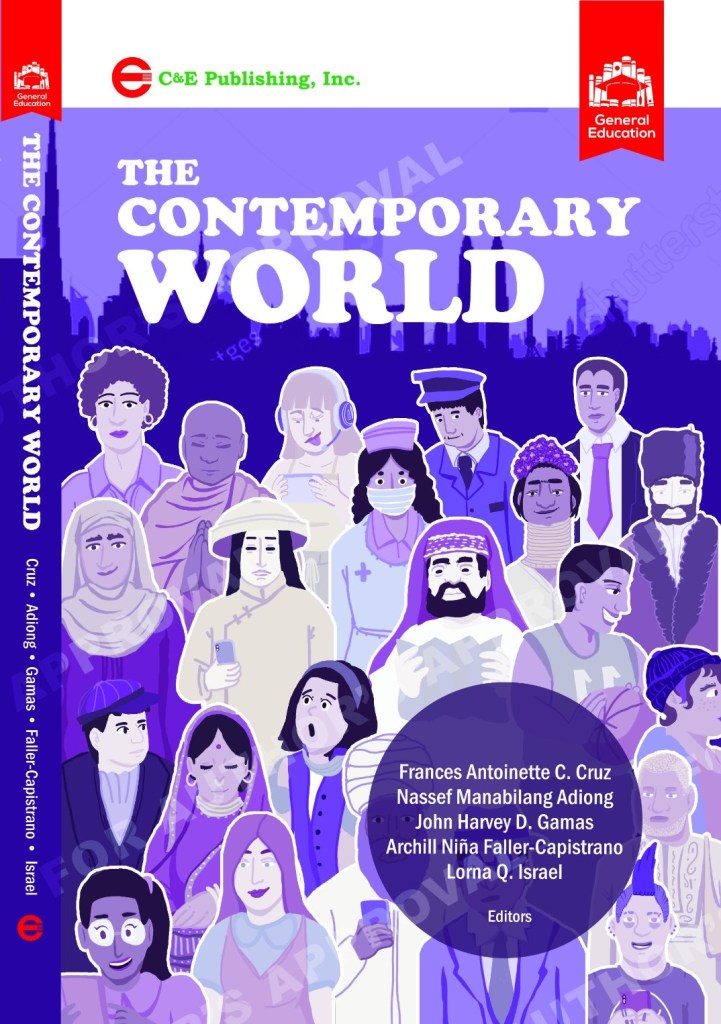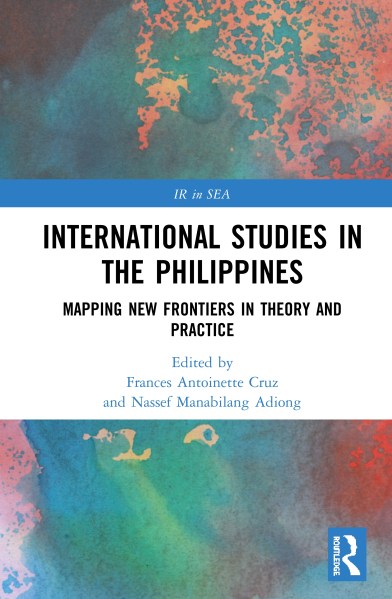
We now live in a highly interconnected world where even the most remote occurrences could affect us profoundly. To understand this current reality, the sections in this book deal with the impacts of globalizing process or ‘flows’ in The Contemporary World, with a special focus on the Philippines and the Global South. The authors of this book represent various disciplines and bring their own unique approaches to understanding the complex contemporary phenomena associated with globalization. Each section comprises of two or more chapters detailing a specific aspect of globalization and includes discussion questions and suggested activities. The first section on the structures of globalization details processes, systems, and institutions that are used to manage globalization, such as market integration and the state system. The book’s second section explores the history and impact of regions and regional organizations as actors in global politics and what roles they play in global arena. Considering the vast cultural and ideational impacts of globalization, the third section dwells on the complexities of media and religion in the 21st century and their relationship to material forces that co-exist alongside them. The fourth section features points of interest for the Philippine context, where the issues of global population trends and mobility have a long history that continues to affect our present economic and social conditions. The environment is the focus of the fifth section, which examines the relationship between the natural world, sustainable development, and food security. Lastly, the book ends with a chapter on the active and responsible participation of the youth in a globalizing world—global citizenship.
Citation: Cruz, FA.C., Adiong, NM., Gamas, JH., Faller-Capistrano, AN., and Israel, L.Q. (eds.) The Contemporary World. Quezon City: C&E Publishing, 2023.
International Studies in the Philippines: Mapping New Frontiers in Theory and Practice shows how IR is conceptualized and practiced in the country. How can local experiences and the social transformation generated by modernity help to enrich our understanding of the international? What might a version of the much-discussed “non-Western International Relations (IR)” look like? What continuities and discontinuities from the Philippine experience in particular can be useful for understanding other post-colonial polities? The Philippines makes a fascinating case study of a medium-sized, developing, post-colonial, multi-ethnic and multi-cultural state in Southeast Asia. Cruz, Adiong and their contributors map horizons of non-Western approaches in Philippine experiences of IR, rooted in the Global South, and in local customs and practice. Examining both theory and praxis, they explore issues as diverse as pre-colonial history, diplomacy, religion, agrarian reform and the Philippines’ relationship with key regions in the Global South. The book will appeal to researchers interested in Southeast Asian Studies and alternative perspectives on IR. [Download the flyer here]
Citation: Cruz, Frances Antoinette Cruz and Nassef Manabilang Adiong (eds.) International Studies in the Philippines: Mapping New Frontiers in Theory and Practice. London: Routledge, 2020.


Islam in International Relations: Politics and Paradigms analyses the interaction between Islam and IR. It shows how Islam is a conceptualization of ideas that affect people’s thinking and behaviour in their capacity to relate with IR as both discipline and practice. This approach challenges Western-based and defined epistemological and ontological foundations of the discipline, and by doing so contributes to worlding IR as a field of study and practice by presenting and discussing a broad range of standpoints from within Islamic civilization. The volume opens with the presentation and discussion of the international thought of a major Muslim leader, followed by a chapter that addresses the ethical practice of IR, from traditional pacifism to modern Arab political philosophy. It then switches to applying constructivism as a tool to understand Islam in world affairs and proceeds to address the issue of how the ethnocentric approach of Western academia has hindered our understanding of world affairs. The volume moves on to address the ISIS phenomenon, a current urgent issue in world affairs, and closes with a look at Islamic geopolitics. This comprehensive collection will be of great interest to students, scholars and policy-makers with a focus on the Muslim world. [Download the flyer here]
Citation: Adiong, Nassef Manabilang, Raffaele Mauriello, and Deina Abdelkader (eds.) Islam in International Relations: Politics and Paradigms. London: Routledge, 2018.
Reviewed by (2019) Islam in international relations. Politics and paradigms, Critical Studies on Terrorism, DOI: 10.1080/17539153.2019.1629726
Islam and International Relations: Contributions to Theory and Practice conceives of International Relations (IR) as an intellectual platform, and not as a unilateral project. It is in this vein of thought that each contributor explores Islamic contributions to the field, addressing the theories and practices of the Islamic civilization and of Muslim societies with regards to international affairs and to the discipline of IR. The inclusion of Muslim contributions is not meant to create an isolationist, judicious divide between what is Islamic and what is not. Instead, this study supports the inclusion of that knowledge as a building block in the field of IR. An outcome of the Co-IRIS team (International Relations and Islamic Studies Research Cohort), this study draws together the combined expertise of scholars of Islam in international affairs. [Download the flyer here]
Citation: Abdelkader, Deina, Nassef Manabilang Adiong, and Raffaele Mauriello (eds.) Islam and International Relations: Contributions to Theory and Practice. London: Palgrave Macmillan, 2016.
Reviewed by Ananya Sharma for Insight Turkey (Fall 2017, Vol. 19, No. 4).


International Relations and Islam: Diverse Perspectives presents the idea of finding a middle way or common ground of understanding between two bodies of knowledge conceived from two different hemispheres of the world; namely, International Relations (IR), a social science discipline conceived in the UK and the US (the West), and Islam or Islamic Studies which was conceived in the Arab world and developed in Iran, Pakistan, Turkey, Malaysia, Indonesia and many non-Arab countries. The book is divided into two main sections; the first being general perspectives from different backgrounds or cases concerning Islam. The second part specifically examines Turkey, offering various perspectives on the significance of this country and its democratic experience. The contributions included in this volume range from discussions on the Islamic veil and its associated stereotypes to an article on Islamic feminism. Other subjects discussed include the issues of Muslim integration, Turkey’s international relations, and Islam’s relationship with democracy, in addition to a biographical representation of the current Minister of Foreign Affairs of Turkey, Ahmet Davutoğlu, detailing his scholarship and its impact on Turkey’s foreign policy. This edited book is part of the mission-vision of the IR-IS Research Cohort, an e-networking community interested in advancing comparative research between International Relations and Islamic Studies. [Download the flyer here]
Citation: Adiong, Nassef Manabilang (Ed.). International Relations and Islam: Diverse Perspectives. Newcastle upon Tyne, UK: Cambridge Scholars Publishing, 2013.


You must be logged in to post a comment.